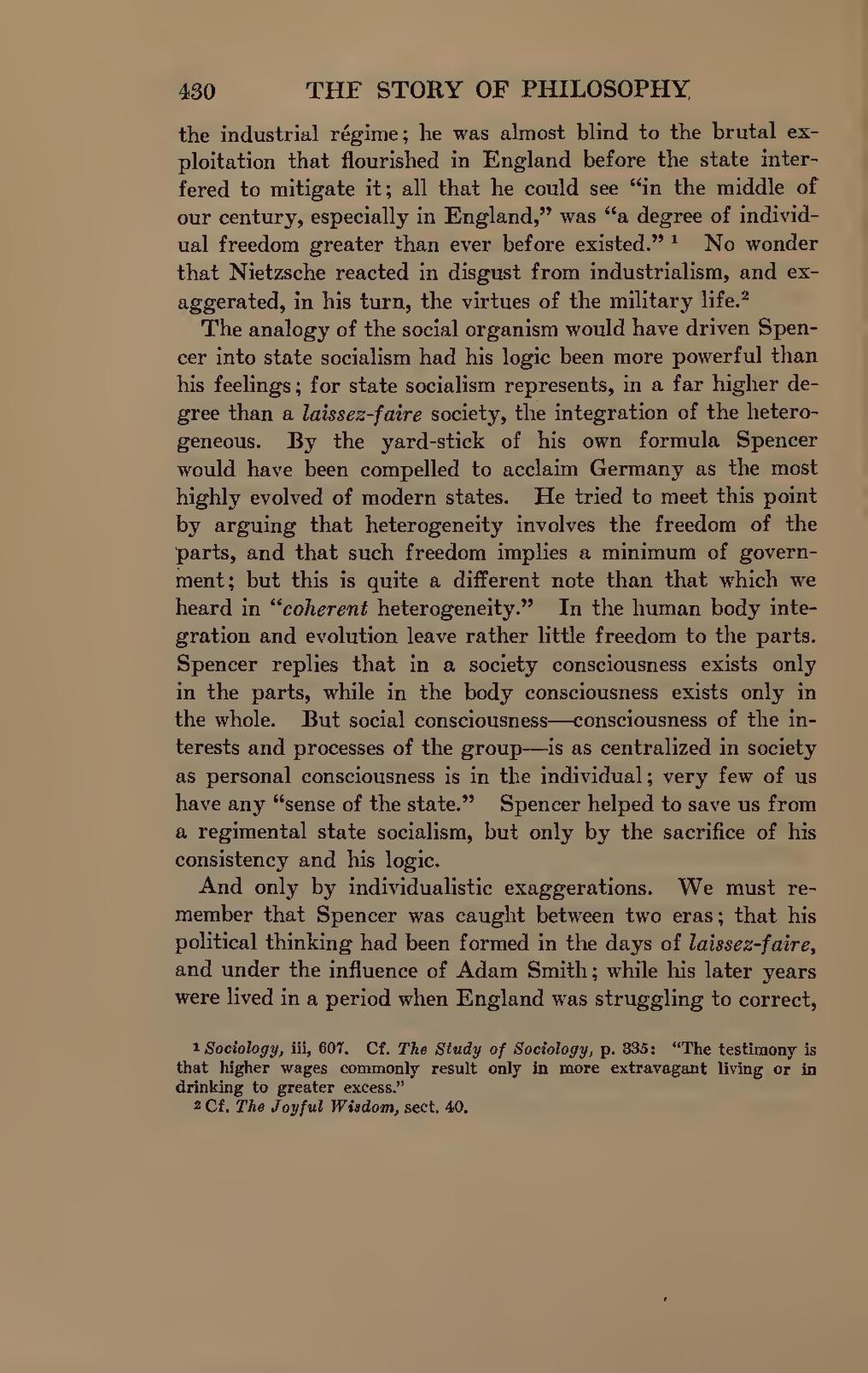the industrial régime; he was almost blind to the brutal exploitation that flourished in England before the state interfered to mitigate it; all that he could see "in the middle of our century, especially in England," was "a degree of individual freedom greater than ever before existed."[1] No wonder that Nietzsche reacted in disgust from industrialism, and exaggerated, in his turn, the virtues of the military life.[2]
The analogy of the social organism would have driven Spencer into state socialism had his logic been more powerful than his feelings; for state socialism represents, in a far higher degree than a laissez-faire society, the integration of the heterogeneous. By the yard-stick of his own formula Spencer would have been compelled to acclaim Germany as the most highly evolved of modern states. He tried to meet this point by arguing that heterogeneity involves the freedom of the parts, and that such freedom implies a minimum of government; but this is quite a different note than that which we heard in "coherent heterogeneity." In the human body integration and evolution leave rather little freedom to the parts. Spencer replies that in a society consciousness exists only in the parts, while in the body consciousness exists only in the whole. But social consciousness—consciousness of the interests and processes of the group—is as centralized in society as personal consciousness is in the individual; very few of us have any "sense of the state." Spencer helped to save us from a regimental state socialism, but only by the sacrifice of his consistency and his logic.
And only by individualistic exaggerations. We must remember that Spencer was caught between two eras; that his political thinking had been formed in the days of laissez-faire, and under the influence of Adam Smith; while his later years were lived in a period when England was struggling to correct,
